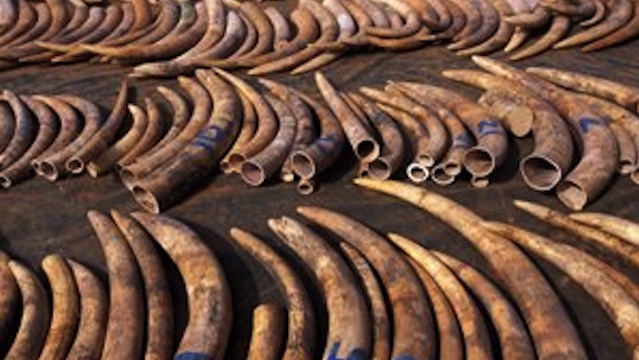SUMMARY
This is AI generated summarization, which may have errors. For context, always refer to the full article.

GENEVA, Switzerland – The question of whether to extend a trade ban on African ivory is set for a vote at the next meeting of the United Nations (UN) wildlife trade regulator CITES, the organization said Friday, October 5.
It is “probably the most contentious issue” at the Bangkok conference in March, said John Scanlon, the head of CITES, the Convention on International Trade in Endangered Species of Wild Fauna and Flora.
In the Philippines, the government has given more attention to the illegal ivory trade since a Filipino priest was tagged in National Geographic to be involved in ivory smuggling. The product is used for crafting religious statues, the demand for which is high in this mostly Catholic country.
Citing the “highest level of illegal killing and trade in 20 years,” Scanlon said the meeting offered a chance to halt the “spike in poaching in ivory” since there was “consensus around taking measures to stop it.”
CITES members had presented 67 proposals for and against a total trade ban, he told reporters in Geneva.
One was a call by 4 nations – Burkina Faso, Kenya, Mali and Togo – for a blanket ban on ivory from all 38 countries in Africa where elephants live until 2017.
At present only 4 countries were affected – Namibia, Botswana, South Africa and Zimbabwe – CITES said.
Another proposal, by Tanzania, would allow that country to sell 101 tons of stockpiled ivory and also trade in elephant hunting trophies.
Under CITES rules, proposals are adopted by a two-thirds majority, Scanlon said, adding that at the last global conference in Doha in 2010, 25 out of 42 proposals got the green light.
In addition to the bid to beef up restrictions on the ivory trade, other members sought tougher measures to protect the white rhino (Kenya), the white-tip shark (Colombia, US), and manta ray (Ecuador).
The United States, meanwhile, pushed for a total halt in the trade of polar bear parts and products, claiming that climate change had shrunk the animal’s natural habitat and it therefore qualified as an endangered species.
The 176 member states will also get a chance to vote on proposals to boost the protection of hammerhead sharks and the porbeagle fish – both narrowly defeated two years ago. – Rappler.com, with reports from Agence France-Presse
Add a comment
How does this make you feel?
There are no comments yet. Add your comment to start the conversation.